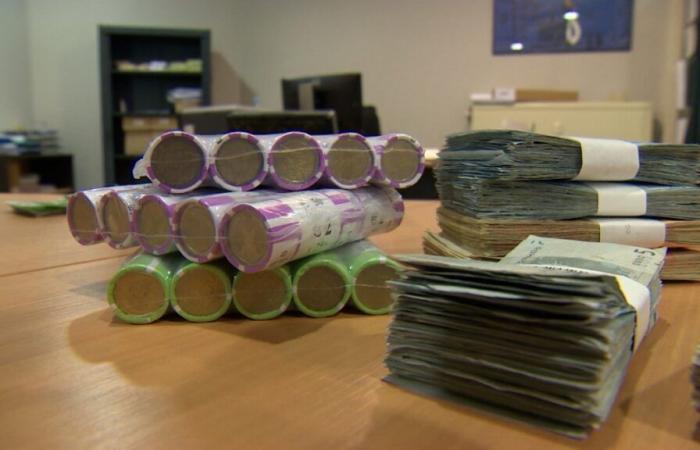
The new government will have to face significant challenges, particularly that of restoring public finances. The debt is reaching new heights: more than 600 billion euros… and the forecasts for the coming years are hardly reassuring.
To assess the financial situation of Belgium, what could be more normal than to go to the calculator in hand, the one who held the purse strings of the government of Alexander De Croo, the Secretary of State for the Budget, Alexia Bertrand: “We are coming out of a legislature which was marked by crises. The Covid crisis, the Ukrainian crisis, the energy crisis and despite these crises, the current government has made 11 billion efforts“, she emphasizes.
Belgium’s debt is soaring, in an uncontrolled skid since Covid in 2020. For Philippe Ledent, an economist who has observed our finances for decades, that cannot be an excuse. “Obviously it has deteriorated public finances and I almost want to say that public finances are there to be deteriorated in cases like this. Nobody necessarily questions what happened at that time. on the other hand, once things get better, and once again, certainly the last two years have been years economically far from great, but they are years which would still have justified us being more careful“, he believes.
This immense debt represents 105% of our GDP, all the wealth produced. Every year the debt grows because every year we spend more than we earn. Our deficit must not exceed 3% of GDP, according to the rules imposed by Europe. It was 4.5% last year, and the planning office’s forecasts show it at 5.8% in 2029.”
“That’s why as soon as I arrived at the end of 2022, we said that for 2024, we are going to make 3 billion savings in addition to what was already planned in the government agreement“, justifies Alexia Bertrand
But then, is it serious, doctor? “Belgians will have to accept receiving less from the State, possibly by paying a little more taxes or certain taxes in any case“, notes Etienne de Callatay, economist. The question then is: how to recover this budgetary slippage and clear the debt?”The first thing to do is a movement of convergence: reduce spending, increase revenue to reduce this deficit, and then we will have to decide where we want to put the cursor“, estimates Etienne de Calattay. “Tax reform, pension reform, labor market reform, it’s a bit of a trilogy, so that the gears of the Belgian economy work much better. The good news is that we are very inefficient. So that means that the measures that we can take to correct are less difficult to take than in an economy that would already be hyper efficient and we must start by stopping wasting public resources.“, adds Philippe Ledent.
public finance government





